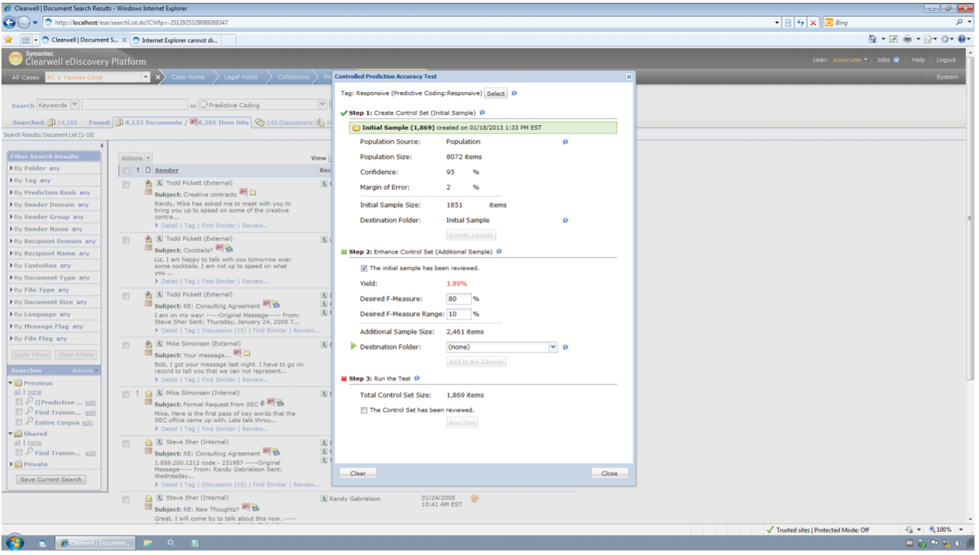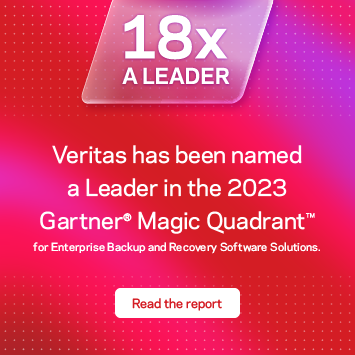- VOX
- Technical Blogs
- Insights
- Machine Learning with eDiscovery Platform 9.0
Machine Learning with eDiscovery Platform 9.0
- Subscribe to RSS Feed
- Mark as New
- Mark as Read
- Bookmark
- Subscribe
- Printer Friendly Page
- Report Inappropriate Content
In legal professional circles, traditionally it is commonly accepted and unwritten rule that the success of your every lawsuit depends on 3 'I'.
Traditional 3 “I” dimensions that influence outcome of a legal proceeding:
1) Individuals: Outcome of your lawsuit depends a lot on - 'concerned individuals' like judges, paralegals, lawyers, attorneys and opposing counsel. Natural instinct of these individuals, their prejudices, perceptions matter a lot in outcome of your case.
2) Instruments: Outcome of your lawsuit depends lot on - 'instruments you use' i.e. legislative act, law, contract, writ, deed, the way you present all this in your case.
3) Institutes: Outcome of your lawsuit depends lot on - 'institute where you fight your case'. A case can be dealt differently at district court, but same may be heard very differently at federal court and so on.
However, in today’s modern digital world, after the spread of technology, mainly after ESIs (electronically stored information) got ‘generally accepted’ everywhere, there is one more dimension got added that heavily influence the outcome of a legal suit and that is 4th ‘I’ i.e. intelligence of the tools.
Modern day 4th “I” dimension that influence outcome of a legal proceeding is the Intelligence of eDiscovery tool i.e. artificial intelligence that come through machine learning.
Truly, intelligence of your eDiscovery tool can make a huge impact on the outcome of your litigation. Machine learning is a technique that teaches computers to “learn and think” and then act accordingly with minimum instructions. It is everywhere now – from self-driving cars to online shopping to speech recognitions to maps and what not. When it comes to eDiscovery this ‘learning’ part is extensively significant. That’s why, even though it may be just a new buzzword or just a hot new technology for others, machine learning (in the form of Predictive Coding) is part of Veritas eDiscovery system for long time and it is maturing nicely now.
Rise of machine learning
In last couple of years, data scientists have shown tremendous interest in using machine learning to mine legal documents and support legal strategy. The biggest challenge for corporate legal counsel is the constant pressure to reduce costs in litigation, especially when faced with numerous discovery requests. Machine learning can play a role here and help speed up the discovery time
Machine learning in eDiscovery
Remember, “reviews” cost makes up the greatest part of the discovery spend. Also, it requires considerable time. Machine learning can expedite eDiscovery and reviews and reduce overall cost drastically. ‘Predictive coding’ is a type of machine learning that enables a computer to help "predict" how documents should be classified based on limited human input. In Veritas eDiscovery, predictive coding helps to prioritize documents and so reduce review costs drastically. It ranks documents continuously to take advantage of additional judgments by the reviewers. As training continues, rankings improve, so the review team finds relevant documents faster. With prioritized reviews, the reviewers proceed more quickly because the documents have similar content. Once most relevant documents are found, the reviewers can move faster through the remaining documents because there is less fear of missing something important.
Predictive coding approach
Veritas predictive coding is simple, clean and transparent. Reviewers review a small subset of documents initially. Build a model to make the system "learn" the characteristics of responsive (relevant) documents. Then test the model on a small pre-determined dataset (called the control set). If it is accurate enough, then we have a trained model. If it is not accurate enough, then repeat creating small subset again. Run the Predictions on the rest of the case documents. It gives a score for each document. For documents with high scores, trust the system and then export the documents for production
Trends of machine learning adoptions in courts
Initially there were concerns if the evidences produced through machine learnings are acceptable in courts or not. However, recently there were two milestone judgements where machine learning evidences were accepted by judges - Pyrrho Investments Ltd. v. MWB Property and Rio Tinto Plc v. Vale S.A.
Considering all the facts, there is no second thought that machine learning is now becoming an integral part of eDiscovery and Veritas is way ahead on adopting and implementing it. Read more on Veritas eDiscovery capabilities and how you can speed up your reviews with predictive coding.
You must be a registered user to add a comment. If you've already registered, sign in. Otherwise, register and sign in.
- Women transforming the future of tech at Veritas—Gayatri Deshpande and Swapna Thete in Inside Veritas
- What’s new in NetBackup Flex Scale 3.0—The simplest way to securely get NetBackup 10 up and running in Protection
- Hackers are in, now what? in Protection
- How Traditional Data Protection Strategies Increase the Risk for Your Business in Partners
- Veritas Digital Compliance Products Now Available as FedRAMP Authorized Solutions in Insights



